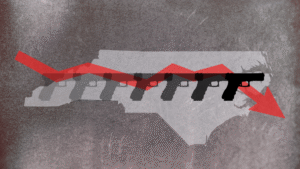Sometimes, the smallest ideations—born in a math forum in fifth grade—blossom into revolution. That’s the story of Duke junior-turned-entrepreneur Tarun Amasa, co-founder of Endex, a startup building the first AI digital worker inside Microsoft Excel. Amasa’s conviction secured him $14 million in first-round funding, led by the OpenAI Startup Fund—a feat that marks a turning point in how people work with spreadsheets.
This article expands on a profile by The Duke Chronicle, reframing it as a Bull City Citizen story with deeper context and broader insight .
A Seed of Innovation
Inspired by artificial intelligence internships at Apple and Tesla, Amasa and two fellow students launched Endex with nothing more than conviction. “We had no funding… just really had a lot of conviction that the world was going to change,” he told The Chronicle . Today, Endex’s AI agent can process complex financial data, generate charts using company style guides, and operate within Excel—where most financial analysts still spend hours on routine tasks.
OpenAI’s $14 million funding underscores the potential of embedding vertical-specific AI into everyday tools. The startup’s interface brings “digital analyst” capabilities directly into financial workflows—far more than just another API .
From School to Silicon Valley
At Duke, Amasa studied computer science, mathematics, and statistics as a Robertson Scholar, a program fully funded in honor of hedge fund pioneer Julian Robertson. During his junior year, he took a leave of absence to focus on building Endex and received a Thiel Fellowship, a $100,000 grant supporting young innovators who step away from college to create new ventures .
He reflected on the rarity of Duke students launching startups: “When you hear people who do startups, you hear them coming from Stanford or Harvard — not many from Duke… I just had conviction.” He also praised Duke’s flexibility and support structures that allowed him to explore nontraditional career paths .
But he believes Duke could do more to make entrepreneurship visible—“at the ground floor”—for students unsure whether building startups is a viable path .
Why It Matters for Durham—and Beyond
Durham’s tech ecosystem relies on innovation. Endex’s success story amplifies that ecosystem and serves as a local inspiration. Consider:
Workforce Highlight: Endex shows how AI can elevate common workflows—not just replace them. It hints at a future where digital agents collaborate with human teams. Academic Flexibility: Amasa’s journey illustrates how structured support (Robertson Scholars, Thiel Fellowship) and institutional flexibility fuel bold ideas. Local Roots, Global Reach: The startup, born from Duke soil, plugged into OpenAI’s ecosystem, demonstrates how local talent can engage with global tech players.
What’s Next for Endex—and Duke Students
Expansion of the Agent: As Endex evolves, its AI could shift from “junior intern” to fully-fledged digital coworker. Wider Access: OpenAI fund backing may help Endex scale quickly and offer early access to new users, as Amasa hinted in social media . Campus Culture Shift: Amasa hopes his path sparks curiosity among Duke students about entrepreneurship. “I’m excited to see if it’ll help even one more kid want to go do their own thing,” he said .
At the Bull City Citizen, we’ll continue profiling Durham-area entrepreneurs who take risks—and inspire others to follow suit.












